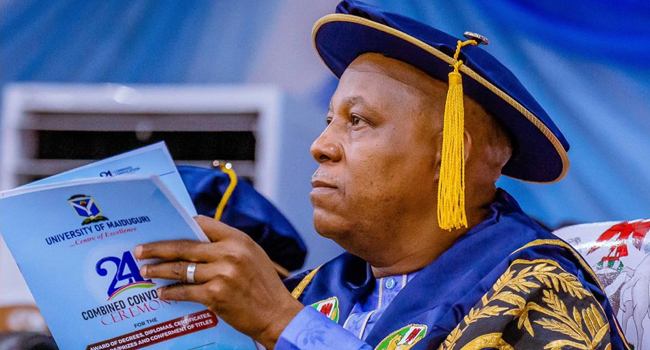“We empathize with the poor but have no option.” Shettima Defends the Government’s Policies
The federal government of Nigeria has expressed sympathy for the plight of its inhabitants, particularly the impoverished, in light of the current economic crisis.
On Monday, at the Nigerian Economic Summit’s 30th anniversary celebration in Abuja, Vice President Senator Shettima made the following statement.
While praising the government’s efforts to boost the economy, he defended the present administration’s economic policies.
Some of the policy choices and decisions that are accessible might be painful, but they are nearly inescapable, according to Shettima.
The Nigerian people are dear to President Bola Tinubu and to me. We feel terrible about the plight of Nigeria’s youth and the impoverished, yet we are helpless to change their situation.
“The truth is frequently the truth that men prepare not to hear, but some of these decisions are unpopular.”
In an effort to resuscitate the economy and entice international investment, President Bola Ahmed Tinubu implemented reforms shortly after taking office last year.
But ever since Tinubu floated the naira currency and withdrew a fuel subsidy, inflation in Nigeria has reached a three-decade high and petrol prices have skyrocketed.
Last Wednesday, the Nigerian National Petroleum Company Limited (NNPCL) increased the price of gasoline from around 610 naira ($0.38) per litre to 855 naira or more.
The NNPC was already undercut by private vendors on fuel pricing. On Wednesday, a litre of one was going for 1,200 naira.
The fuel price hike followed NNPC’s admission the day before that it was having trouble keeping up with demand due to financial constraints.
However, the VP emphasised that the economy is dependent on oil profits and warned that the country’s growth trajectory has been unpredictable.
“Nigerian economy has been struggling for a while now, as has the economy of many other countries. From the COVID-19 pandemic and oil price fluctuations to domestic security concerns, inflation, and systemic flaws in our economy, the obstacles have been both global and domestic.
He stated that Nigeria’s progress has been unpredictable, highly reliant on oil profits, and incapable of producing sufficient employment opportunities.




